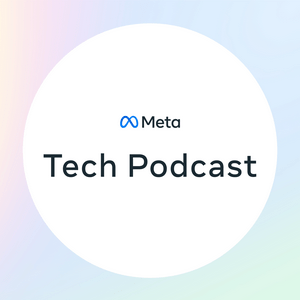At Meta, even seemingly simple engineering tasks—like updating an API—become monumental undertakings when you're dealing with millions of lines of code and thousands of engineers, especially if the changes are security-related. In today's episode, Pascal talks to Alex and Tanu about the challenges and learnings from the journey of making Meta's mobile frameworks more secure at a scale few companies ever experience. Tune in to this episode and join us as we explore the compelling crossroads of security, automation, and AI within mobile development.
Got feedback? Send it to us on Threads (https://threads.net/@metatechpod), Instagram (https://instagram.com/metatechpod) and don't forget to follow our host Pascal (https://mastodon.social/@passy, https://threads.net/@passy_). Fancy working with us? Check out https://www.metacareers.com/.
Links
How AI Is Transforming the Adoption of Secure-by-Default Mobile Frameworks - https://engineering.fb.com/2025/12/15/android/how-ai-transforming-secure-by-default-mobile-frameworks-adoption/
RCCLX: Innovating GPU Communications on AMD Platforms - https://engineering.fb.com/2026/02/24/data-center-engineering/rrcclx-innovating-gpu-communications-amd-platforms-meta/
The Death of Traditional Testing: Agentic Development Broke a 50-Year-Old Field, JiTTesting Can Revive It - https://engineering.fb.com/2026/02/11/developer-tools/the-death-of-traditional-testing-agentic-development-jit-testing-revival/
Timestamps
Intro & News 0:06
Meet the Product Security Team 2:07
Understanding the Intent System 4:13
Security Challenges in Android's Intent System 6:44
Proposed Solutions for Intent Security 9:39
Meta's Unique Challenges at Scale 12:34
Implementing a Secure Link Launcher Framework 15:32
Leveraging AI for Contextual Understanding 17:55
Navigating AI-Driven Code Modifications 20:47
Developer Experience with AI Code Mods 21:49
Validation Challenges in AI Code Generation 25:37
Evolution of AI in Code Modifications 29:29
Identifying AI's Strengths in Security 36:20
Future Directions in AI and Framework Development 42:58
Outro 46:58


